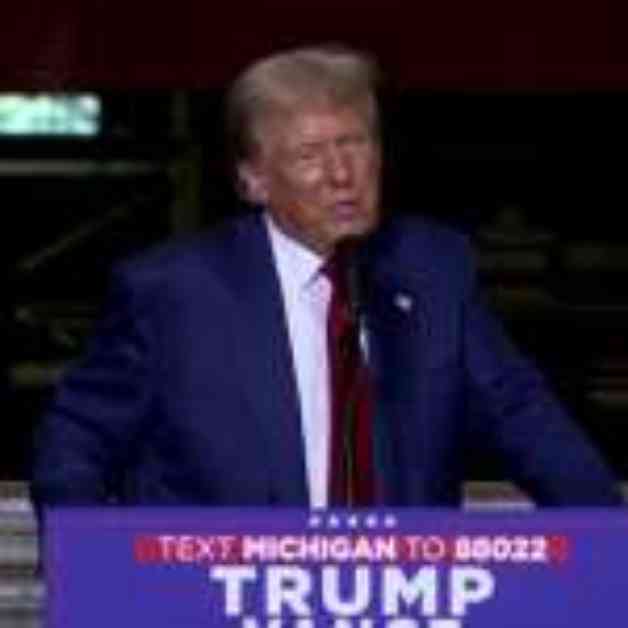Former President Donald Trump’s plans to take foreign companies have raised concerns due to a lack of specifics in his proposals. During a recent speech in Georgia, Trump outlined his intentions to prevent U.S. businesses from offshoring jobs and to attract foreign companies to invest in American industry. However, economists have noted that his proposed tariffs could potentially raise domestic prices.
One of the key points Trump highlighted was his plan to reduce the corporate tax rate from 21% to 15% for companies that produce goods in the U.S. In contrast, Vice President Kamala Harris has proposed raising the corporate tax rate to 28%. Trump emphasized his commitment to putting America first and creating millions of new jobs through what he called “new American industrialism.”
Despite his bold claims, Trump has not provided specific details on how his plans would be implemented or the potential costs involved. Questions remain unanswered regarding the application of corporate tax cuts to companies that assemble products domestically from imports. Additionally, concerns have been raised about the impact of tariffs on consumers and the feasibility of implementing the largest deportation operation in U.S. history.
Trump has expressed a desire to personally recruit foreign companies and attract investments to the U.S. However, his track record in attracting foreign investment during his time in office has been mixed. For example, a promised $10 billion investment by Taiwanese electronics giant Foxconn in Wisconsin never materialized, raising doubts about the feasibility of his proposals.
Incentives such as offering foreign companies access to federal land have been suggested as part of Trump’s strategy to boost American industry. However, questions have been raised about potential restrictions on companies from certain countries, particularly China. Trump’s campaign has yet to provide clarity on whether companies from China would be excluded from such incentives.
Trump also vowed to increase auto manufacturing in the U.S., stating his desire for German car companies to become American car companies. While BMW, Mercedes, and Volkswagen already have major plants in the U.S., shifting more manufacturing to America could be a lengthy process with potential cost implications.
The former president unveiled his plan in Savannah, Georgia, a key location for cargo shipping in containers. This visit marked Trump’s return to the battleground state since resolving a feud with Republican Governor Brian Kemp. With Vice President Kamala Harris launching her presidential bid, Georgia has become more politically competitive, prompting concerns among some Republicans.
Trump’s running mate, JD Vance, is set to hold a rally in Georgia, further highlighting the state’s importance in the upcoming election. Despite Governor Kemp’s absence at Trump’s recent event, supporters like Rep. Marjorie Taylor Greene have praised the former president for his contributions to the country.
Georgia Lt. Gov. Burt Jones criticized Harris for her remarks about Trump, highlighting the ongoing political tensions. However, some attendees at the event expressed confidence in Kemp’s leadership and downplayed any potential conflicts between him and Trump.
Overall, Trump’s plans to attract foreign companies and boost American industry have sparked debate and raised questions about the specifics of his proposals. As the election season heats up, the focus on economic policies and job creation will continue to be a key issue for voters.


